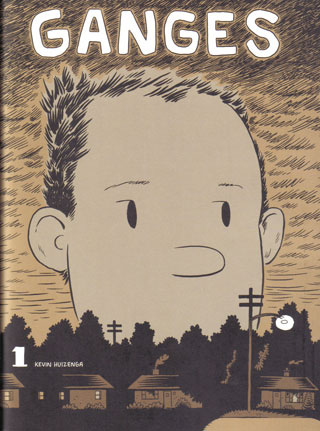Graphic Lit: New "Love & Rockets" Collections

Twenty-five years ago (or thereabouts), two brothers, both aspiring cartoonists living in Oxnard, Calif., decided to forgo the usual Marvel and DC route and self-publish their comics.
Titled “Love and Rockets,” their book was a weird, heady mash-up of superheroes, underground comix, rock
They sent their first issue to Gary Groth, then editor of The Comics Journal magazine, for him to review. Groth liked the book so much he asked the brothers if they’d be willing to let him publish it.
The rest is history, as “Love and Rockets” quickly became the flagship title for Groth’s new publishing company Fantagraphics, and the standard bearer for what became known in the 1980s and
Jamie (pronounced “Hi-may”) and Gilbert Hernandez have been regularly publishing the adventures of their extensive cast of characters for decades, both in “Love and Rockets” and in separate series, occasionally joined by their older brother, Mario.
The books are a follow-up of sorts to the immense, hardcover coffee-table volumes — “Locas” and “Palomar” — that Fantagraphics put out a few years ago.

The books are smaller but handsome, and much thicker than previous collections. And while some may quibble over the size, there’s no question that $15 is a bargain for the amount of story you get.
“Heartbreak Soup” kicks off the beginning of Gilbert’s “Palomar” tales, the fictional sleepy village along the Mexican coast. Its denizens include the saucy, slug-selling Tonantzin, the idealistic accordion teacher Heraclio and the hammer-wielding Luba and her large brood of children.
Combining magical realism with vibrant characters and almost mind-bending jump cuts between panels, “Soup” quickly established Gilbert as one of the best cartoonists of his generation.
Jamie’s “Maggie the Mechanic,” meanwhile, focuses on the adventures of surly young punk rockers (and possibly lovers) Maggie and Hopey and their extended cadre of friends.
These early stories incorporate a good deal of science-fiction, with dinosaurs, superheroes and Latin American politics frequently intruding on the plot.
Jamie would later abandon all that in favor of a greater and more thoughtful realism, but these
If for whatever reason you’ve avoided “Los Bros Hernadez’s” work up till now, you no longer have any excuse. It’s a great time to get acquainted with some of the best comics ever made.
The Ignatz line
The new “Love and Rockets” books underscore the movement away from pamphlet-sized material to more lengthy graphic novels.

For those who hate to see the format abandoned, there’s Fantagraphics ongoing Ignatz series.
“Cartoonists can’t afford to spend three to four years doing graphic novels,” Thompson said.
The books are handsome affairs, with the kind of stellar production values Fantagraphics is known for. Each title is 32 pages, measures 8½x11” and costs $7.95.
Ongoing “Ignatz” titles include:
“Ganges” by Kevin Huizenga. Huizenga’s everyman listens to the Beatles, wanders through his neighborhood and worries about death.

“Delphine” by Richard Sala. A gothic horror take on the classic “Snow White” fable.
“They Found the Car” by Gipi. A man gets a phone call in the middle of the night telling him ... well, you know.
“Babel” by David B. The author of “Epileptic” revisits his relationship with his ill brother.
For more information about the Ignatz line, go here.

1 Comments:
Love and Rockets is outstanding and deserves a more popular recognition, a shame so many people go for the mainstream rather the underground.
Post a Comment
<< Home